Windows 10 for free? New Zetatalk on Gigantic Snooping Operation and how to protect yourself from snooping even if using the soon to be released Windows 10
NB: the following is advice on how to help cut down on any snooping by Microsoft if you already have or plan to upgrade to Windows 10 - the firm advice of this Ning is to avoid upgrading to Windows 10 at all!
There is no guarantee that the methods listed below will ensure that you are not being snooped on, nor will they guarantee that you will avoid any other negative consequences of upgrading to Windows 10.
The tips below apply to any operating system should you wish to take steps to protect your privacy
----------------------------------------------------------------------------------------------------------------------------------
In light of the new Zetatalk regarding the new Windows 10 set to arrive for free to users, I'm posting this information for people to help evade or "get around" any snooping activity by Microsoft and others if they end up using Windows 10 or any Windows for that matter. Hackers and crackers have been getting around spying and snooping activities for years now so that should tell you that no matter what, where there is a will there is a way to protect yourself on the internet from spying- especially with the Internet being fairly uncontrollable for many reasons that the Zetas have already explained. Using Windows 8.1 or even the new 10, there are many things people can do to protect their online activity from snooping regardless of any secret backdoor access built into Windows 10.
With the copyright infringement legal mess stemming from a lot of greed from corporations and the government spying activities detailed by Snowden, many people over the last couple of years have turned to what is called a VPN service for some degree of privacy while surfing the internet. There are now many VPN providers available, some free, others charge. A VPN is a Virtual Private Network. Essentially it creates a new IP address identity that all of your internet activity is filtered through so that your real IP address and location are hidden. Many VPN services even offer even stealthier protection in the form of a fully encrypted VPN connection. This is just one way to help protect your privacy.
Another way, and one that can be combined with a VPN, is by utilizing Virtual PC created on top of your original OS (Windows). It essentially creates an operating system of your choosing built into utilizing Virtualized Hardware technology - like a PC within or on top of your primary PC OS that you can boot up many different types of Operating systems including many Linux Operating systems and older versions of Windows even. Personally I like using Ubuntu due to its ease of use but there are a ton of Linux OS's out there that are very secure due to the fact that hackers typically do not target them as much as there are not a lot of people using them... kind of how Apple's OSX is more secure in that it is less of a target as well. So a virtual machine created with Linux is kind of like a separate sandbox where you increase some levels of privacy for yourselves by running an operating system on top of and within Windows 10 as it is separated virtually from the Host OS.
Now if using Windows 10 you can combine some of these options to become a lot more private even while using Windows 10. A VPN is good, but if not an option, another one is to use what is called the Tor Browser Network - an anonymizing network and browser that uses anonymous proxy connections while you are surfing the web.
So in theory and likely in practice, an ultra secure way to browse and work on your Windows PC would be using a virtual machine OS such as Ubuntu or Redhat Linux or many other flavors of Linux distros, a VPN of some kind, and surfing the web with the Tor browser network all at the same time.
These are just suggestions that will help privatize your activities, but to what degree they work against the power snoopers out there, I don't know for certain as I do not know the full capabilities of what the NSA has access to, but... I do know that in general and in theory all of these options will add to your overall level of privacy on any Windows OS. If you would like to know more, do some googling on these things and find out how exactly they work. The links below can help you get started in protecting your privacy regardless of what version of Windows used. While there may not be a 100% anonymous privacy solution for people, I hope these suggestions help. From what I understand, they do. To what degree, that is hard to determine with the NSA's secrecy on tactics and operations. I utilize many of these solutions myself from time to time and find them to, at the very least, ease my mind a little and know for a fact that it raises the bar of privacy on any PC. There are certainly different levels of internet as the Zetas have described. The "official" levels and then other parts that are much more hidden.. like the Deep Web, of which the creator of it, was recently thrown in prison for life for creating it. One thing to Add here is... IMHO; you simply cannot trust the cloud for securing your personal data and information. Just look at what happened when Apple's cloud servers got hacked... lots of private information and notorious personal photos got stolen. Practice KISS (Keep It Simple Stupid) Don't store your personal information ONLINE! Store it offline on a personal encrypted storage device- AND KEEP IT OFFLINE :)
Popular Virtual Machine Software:
Note: Many older PC's, a decade or more older, may not have the built in hardware technology to support creating and using a virtual machine. In this case, a good alternative is dual-booting your PC between one OS and another. Multi-booting NOTE: Virtual Machine Software like VMWARE Workstation can also run on LINUX! This means you can create a virtual machine sandbox to run Any version of Windows (XP, 7, 8, etc.) right from within your booted up main LINUX OS! There is EVEN A WAY TO RUN MAC OSX on a PC! Google HACKINTOSH - VPN's can be used on the main host OS and/or within the Virtual Machine Sandbox you are running. So if you are running a version of Linux on your PC but need Windows XP or 7 to run say Adobe Photoshop, you can create a Virtual Machine VM to boot up Windows from within your Linux OS and from there install Photoshop on Windows. When done using Photoshop, you simply shut down the Virtual PC of Windows and go back to using your primary Linux OS! So many options today if you know where to look. To learn, one has a vast knowledge base at their fingertips that IS the INTERNET :) However, as is often stated in this BLOG, a TRUE Hacker believes that anything is hackable given time and energy to hack it whether it truly is or not. A great new TV show on the USA network called "MR ROBOT about a team of hackers similar to ANONYMOUS is really good.. it doesn't go into a lot of details, but you can get the idea of how easy information can be accessed by someone that knows how to get it. So with that mentality, you can never be too safe in trying to protect your privacy, personal information, and identity!
Linux:
- Ubuntu Linux (free open source)
- Red Hat Linux
- Fedora Workstation 11 (free open source)
- GNOME (Free Open Source)
- OpenSUSE - OpenSUSE.org (free open source)
- Linux Mint (free open source)
- CentOS 7 (free open source) stable based on Red Hat
- The FreeBSD Project (free open source)
- Kali Linux | Penetration Testing and Ethical Hacking Linux Distribu...
- The Linux Kernel Archives

A Windows PC with nearly all of the best and highest rated Linux Operating Systems installed and running great. Any of them can be booted up at will and used with ease. Most of these Linux OS's also install and run great natively on many PC's out there.
UBUNTU (A classic favorite for many with distributions based on Debian and also a GNOME based version)
LINUX MINT: For People needing something to transition from Windows. Similar interface and built in Windows emulation by installing WINE emulation app for running many Windows programs natively.
Linux CENTOS:
FreeBSD:
GNOME:
KALI Linux:
VPN services:
- PCMAG - The Best VPN Services for 2015
- PCMAG PIA VPN review
- Private Internet Access VPN
- VPN HARDWARE ROUTERS: Hardware Firewall routers to be used with a VPN Service For the Ultimate Protection including the best known connection encryptions available to the public.
The TOR Browser network:
As always a good Antivirus program, Firewall, AND and Anti-Malware program, can help from catching trackers and bugs out on the internet. The other good thing about using a virtual machine on top of your main Operating system, is that any infections will likely never be able to escape the "sandbox" virtual machine and infect your main operating system. So infections can be kept safely away from your main (host Operating System) entirely.
Good luck and be safe out there. Couple other small tips:
- Browse in private (incognito mode) Google Chrome,
- Private Browsing - Use Firefox without saving history
And if anyone else has any tips, suggestions, methods to keep safe on the Internet, Please feel free to post anything.
Thanks
RECENT ZETATALK ~
They are giving the upgrade away for free to all Windows 7 and 8 users, which means 70% of all desktops in the world. This should in and of itself should start alarm bells ringing when you consider that the cost of developing an MS operating system will be many billions of dollars; why for free - this has never been done before - and at a time when we are expecting the announcement any moment? Then, if you read the system requirements, you see that you need an internet connection and a Microsoft account to use the OS and you will not be able to stop it from updating itself with anything that Microsoft pushes out - no option to choose which updates to install for yourself any more. It would seem that anyone upgrading would be handing complete power of their computer usage to Microsoft, who can decide remotely whether to delete your accounts and stop you using your PC if you start causing trouble, ie. after the announcement, and install nefarious software without your knowledge, yet I have been unable to find anyone on the internet sounding a warning over this.
[and from another]
http://en.wikipedia.org/wiki/Usage_share_of_operating_systems
[and from another]
http://www.microsoft.com/en-US/windows/
Yes, free! This upgrade offer is for a full version of Windows 10, not a trial. 3GB download required; standard data rates apply. To take advantage of this free offer, you must upgrade to Windows 10 within one year of availability. Once you upgrade, you have Windows 10 for free on that device.
SOZT
We have repeatedly been asked if the Internet will survive and continue to be open, and our response has from the start of ZetaTalk been that we anticipate that the establishment will NOT be able to shut it down. The reason is that commerce and industry, government business as well as private, use the Internet extensively and to simply shut it down would create too much havoc for those in power. Their approach has instead been to try to get the populace to use VERSIONS of the Internet, connecting to floating platforms like the Outernet or Project Loon.
http://www.zetatalk.com/newsletr/issue388.htm
These provide information to the populace but don’t allow updates or email from the populace, but an Internet that is no more than an interactive TV did not generate interest from the public.
The Internet was designed to be able to function despite blockages, flowing like water
http://www.zetatalk.com/newsletr/issue162.htm
around them. Even if the media, TV and radio, were tightly controlled, the Internet allows the public to provide information to others and learn what is happening around the world. If this cannot be stopped, how can the elite control this? Disinformation is designed to COUNTER the facts, but is most effective when used early so it does not look like a reaction. The facts themselves then are cloaked like a reaction, as they arrive second. To achieve this, Windows 10 will be a gigantic snooping operation, given away free with lots of goodies so hopefully installed on a massive number of personal computers and mobile devices.
EOZT
Comment
-
Comment by SongStar101 on June 24, 2015 at 10:13pm
-
This confirms ZT that the elite are seeking to control computers from within via well known software worldwide!
Spies Hacked Computers Thanks to Sweeping Secret Warrants, Aggressively Stretching U.K. Law
https://firstlook.org/theintercept/2015/06/22/gchq-reverse-engineer...
British spies have received government permission to intensively study software programs for ways to infiltrate and take control of computers. The GCHQ spy agency was vulnerable to legal action for the hacking efforts, known as “reverse engineering,” since such activity could have violated copyright law. But GCHQ sought and obtained a legally questionable warrant from the Foreign Secretary in an attempt to immunize itself from legal liability.
GCHQ’s reverse engineering targeted a wide range of popular software products for compromise, including online bulletin board systems, commercial encryption software and anti-virus programs. Reverse engineering “is essential in order to be able to exploit such software and prevent detection of our activities,” the electronic spy agency said in a warrant renewal application.
But GCHQ’s hacking and evasion goals appear to have led it onto dubious legal ground and, at times, into outright non-compliance with its own procedures for staying within the bounds of the law. A top-secret document states that a GCHQ team lapsed in following the agency’s authorization protocol for some continuous period of time. Meanwhile, GCHQ obtained a warrant for reverse engineering under a section of British intelligence law that does not explicitly authorize — and had apparently never been used to authorize — the sort of copyright infringement GCHQ believed was necessary to conduct such activity.
The spy agency instead relied on the Intelligence Services Commissioner to let it use a law pertaining only to property and “wireless telegraphy,” a law that had never been applied to intellectual property, according to GCHQ’s own warrant renewal application. Eric King, deputy director of U.K. surveillance watchdog Privacy International said, after being shown documents related to the warrant, “The secret reinterpretation of powers, in entirely novel ways, that have not been tested in adversarial court processes, is everything that is wrong with how GCHQ is using their legal powers.”
GCHQ may have also circumvented a restriction on using the type of warrant it obtained for domestic purposes; the agency said in one memo that it has used reverse engineering to support “police operations” and the domestic policing-focused National Technical Assistance Centre.
The agency also described efforts to cozy up to dozens of government staffers it believed could help obtain further warrants.
The agency’s slippery legal maneuvers to enable computer hacking call into question U.K. government assurances about mass surveillance. To assuage public concern over such activity, the government frequently says spies are subject to rigorous oversight, including an obligation to obtain warrants. As it turns out, such authorizations have, at times, been vague and routine, as demonstrated by top-secret memos prepared by GCHQ in connection with the reverse engineering warrant.
The controversial path GCHQ took to authorize reverse engineering also seems likely to lend momentum to an ongoing push to reform the way surveillance warrants are issued in the U.K. Earlier this month, the U.K.’s independent reviewer of terrorism legislation, David Anderson, issued a report recommending that “all warrants should be judicially authorised” and describing the current regulatory system as “undemocratic, unnecessary and — in the long run — intolerable.”
This story is based on 22 documents from NSA whistleblower Edward Snowden, linked below. None have been published before. One was briefly described in a January story in The Guardian.
-
Comment by SongStar101 on June 24, 2015 at 8:47pm
-
Looks like the US Navy will not be using Windows 10 operating system any time soon either.
Microsoft just made millions off a 14-year-old product it shut down a year ago
http://finance.yahoo.com/news/microsoft-just-made-millions-off-1919...
It's because there's still a huge customer base using Windows XP and they're willing to dole out millions of dollars for custom security support.
The latest customer to sign a Windows XP support deal is the US Navy.
On Tuesday, the Navy's Space and Naval Warfare Systems Command (SPAWAR) closed a $9.1 million contract with Microsoft that guarantees continued custom support for security updates on the 100,000 workstations still using Windows XP, Office 2003, Exchange 2003, and Windows Server 2003.
...In fact, according to NetMarketshare, a research firm that tracks OS usage, Windows XP still accounts for roughly 14% of the total desktop operating system market. That's more than the market share of Windows 8.1, Microsoft's latest operating system.
-
Comment by Ryan X on June 24, 2015 at 3:44am
-
Here is a Security and Privacy Tip regarding a Privacy Leak Bug online with information on how to protect your IP identity information and Stop the Leak at least on Firefox. Chrome browser seems to be a bit trickier.
Of primary concern is what is called the WEBRTC security leak flaw in many browsers and operating system that allows a person's IP address to be seen even if using a VPN or anonymous proxy service.
HUGE SECURITY FLAW LEAKS VPN USERS’ REAL IP-ADDRESSES
If you use a VPN service or anonymous IP service of any kind, you can check to see if any of your digital ID information is getting leaked online as you surf the web using any variety of Operating Systems and Web Browsers.
Check for a DNS and/or IP Leak at the following links:
- IP/DNS Detect - What is your IP, what is your DNS, what information...
- WebRTC Security Information IP Leak Test
The demo claims that browser plugins can’t block the vulnerability, but luckily this isn’t entirely true. There are several easy fixes available to patch the security hole.
Chrome users can install the ScriptSafe extension, which can reportedly block the vulnerability.
(Albeit- not as good as the below Firefox Fix)
Firefox users should be able to block the request with the NoScript addon. Alternatively, they can type “about:config” in the address bar and set the “media.peerconnection.enabled” setting to false.
-
Comment by casey a on June 22, 2015 at 7:17pm
-
Google was downloading audio listeners onto computers without consent, say Chromium users
http://www.independent.co.uk/life-style/gadgets-and-tech/news/googl...
-
Comment by Ryan X on June 7, 2015 at 7:16pm
-
Great point Mark. I've used all versions of Windows. Gotten some good use out of them for various things but over the years many alternatives have arrived.
Now people have the option to dual boot their PC's and Mac's to various operating systems of their choosing- Dual booting between Windows 7, 8 and Ubuntu is an option many people use today:
BUT.... it has also come out that the some of the newer PC's (manufacturers forced to play ball with the government) have built in, or want to have built in- backdoor NSA access... etc etc. well we've also seen this issue come up with many of our new smartphones as well. There just isn't a lot of 100% ways to lock down your privacy these days with the government pushing companies to cooperate. There likely IS, but for most people that would take a lot of knowledge, and work to figure out let alone get to using the exact hardware and software needed. I think the good thing to keep in mind, is that in the very near future it's not going to matter very much. And a lot of the tips in this blog and in the comments are helpful in at least making it harder for those snooper agents and hackers to get at you. I'm sticking to whatever OS I want as I know how to protect myself but have also disabled all the Windows 10 auto update stuff on my PCs.
If I want to try the new OS, I will try it out by locking it into a Virtual Machine Sandbox that is disconnected from the network to play around with. That's just me. I'm a techie tinkerer but also have a lot of skills picked up over the years I worked at Microsoft. Right now, I have a Windows 8.1 PC that can boot up a virtual machine of Ubuntu, Fedora and Windows 7 which runs within Windows 8.1 just like another program windows I can minimize to my taskbar.. I can put VPN's on all of them or disconnect them from the net.. I can infect them with any virus and it does nothing to my main operating system and then revert the virtual machine to an earlier state with the click of a button- virus gone. all clean again like it never got infected. MY advice on this kind of like what SongStar101 suggested below GRAB UP those older PC's at a pawn shops and on craigslist etc... they are EVERYWHERE, and load them with whatever OS you want. The newer the PC you buy, the more possibilities of built in backdoor HARDWARE access on the machine. All My PC's are at the very least 3-4 years old now. and they can still dual boot, work with virtual machines, run all kinds of Linux distros. It does take a certain level of skills and knowledge to pick up on for this all to be easy however. This is why I suggested using Virtual Machine technology as an option. It's got fewer steps and is somewhat simple to do. I want to also note that VMWARE's Workstation software also works on LINUX including Ubuntu, Fedora, and other Redhat distrOS. So if you are strictly running Ubuntu for example, you can install vmware workstation on that and boot up Windows XP or 7 from within Ubuntu. You can also use a VPN inside the virtual machine to privatize your surfing without it affecting your host OS IP address or vice versa. If you're into tech stuff at all, it makes it all the easier to take some time learning the ways to help protect yourself. And even if you are not, there are some simple steps you can take which help. Another bonus of knowing all this? No need to run out and buy the fanciest PC out there anymore lol... for those that can still afford to that is. Stick with refurbished, used etc. If you have lots of money, you might even be helping someone else out financially a little by buying their old pc from them... then you can tinker away to bump up your privacy from those little peeping toms! :) NSA: Some used spying power to snoop on lovers My advice to anyone wanting to load up Linux is stick to the LTS (Long Term Stable versions) unless you're feeling adventurous- but some of the newer releases can be buggy.
-
Comment by Mark on June 7, 2015 at 5:42pm
-
yes, of course it is possible to hack into any operating system should you have the skills and data is collected already for various things, but Windows 10 sets itself apart by a mile by being an operating system that is designed for mass survielllance.
But avoiding Windows 10 DOES make a huge (positive) difference to your vunerability even if you are using another MS OS - just needing an internet connection to use it is a big 'no!' - what are you going to do when the internet gets interupted as we are already starting to experience, stop using your PC altogether?
-
Comment by SongStar101 on June 6, 2015 at 11:21am
-
User data is already gathered on all levels of legit software installed, javascripts, applets of websites, spyware, tracking cookies, encryption and more, so nothing new here for Windows 10.
Older Windows systems are not updated nor secure anyways, such as XP. However previous Windows OS older than Windows 10 will all soon likely be updated with the same new operating system patches from automatic updates from Microsoft in order to add the same invasive capabilities as Windows 10! Is there any way to stop this before or after the Announcement? For the common man to fuss over it seems a vast exercise in futility. In all respects to privacy online, being proactive in merely reducing data able to be collected is a great solution!
The more the ptb can reduce the crowds uprising before things get out of hand after the Announcement, the easier it is to control the populace. The Zetas description of Windows 10 reveals some grass roots beginnings of much bigger capabilities on the way, such as shutting a box down at any given time, locking data within, creating various signal alerts when key words are typed...a real Orwellian situation! All this being done without the user knowing.
Sounds like using an older used computer may be the best solution overall. Change it anyway you like such as Linux etc. If it stops working for whatever reason, you botch it up trying to make it work, then just get another for dirt cheap and retrofit it!
Wow what a great post Ryan X!! Thanks!
-
Comment by Ryan X on June 6, 2015 at 12:52am
-
Great tip Jorge! Totally forgot about that one.
-
Comment by Jorge Mejia on June 5, 2015 at 11:55pm
-
Hello, regarding the Windows 10 upgrade icon that Microsoft has been pushing lately on many machines, should you wish to uninstall it, there's a patch responsible (KB3035583) for the various processes. Uninstalling the patch, and hiding it from the Windows Updates section gets rid of the icon, and the whole chain of applications.
http://www.howtogeek.com/218856/how-do-you-disable-the-get-windows-...
I've done this myself with my computers and is everything is working just fine.
Best regards.
-
Comment by Ryan X on June 5, 2015 at 8:09pm
-
@Gerard Zwaan,
Exactly.. Ubuntu works quite well on most PC's today... and I've also tried Fedora as well, both work nicely on a PC. Windows isn't the only option any more, but if you work for any corporation today, chances are it's gonna use Windows LOL. For folks at home, there are plenty of free Linux distros that work great and are very easy to learn and transition to if you've only used Windows before. Lots of free instruction material on the web including the nicely done Linux for Dummies book series.. ebooks etc.. It's great to have other options now.
SEARCH PS Ning or Zetatalk
Nancy Lieder, Emissary of the Zetas.
https://poleshift.ning.com/xn/detail/3863141:Comment:1168188
Awakening to the Alien Presence ZetaTalk
The truth will likely never to be known to the public but be washed away in the Nibiru panic soon to engulf the world.
The Worst of the Cover-Up
https://poleshift.ning.com/profiles/blogs/the-worst-of-the-cover-up
Main Establishment Lies
https://poleshift.ning.com/profiles/blogs/main-establishment-lies
Donate
© 2025 Created by 0nin2migqvl32.
Powered by
![]()



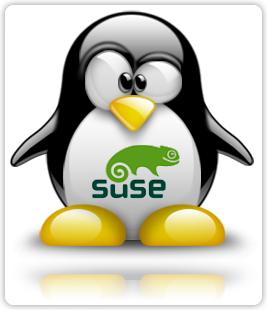

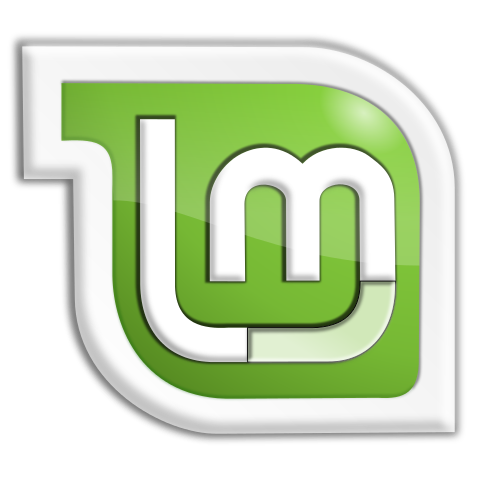

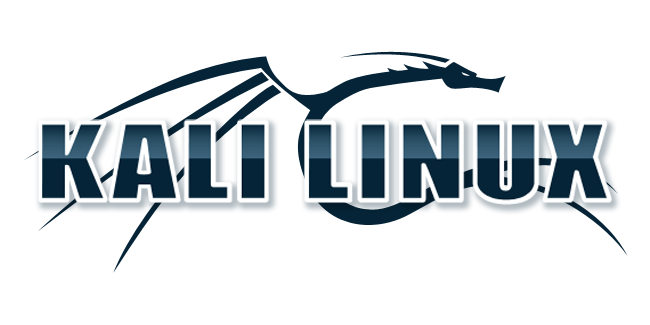
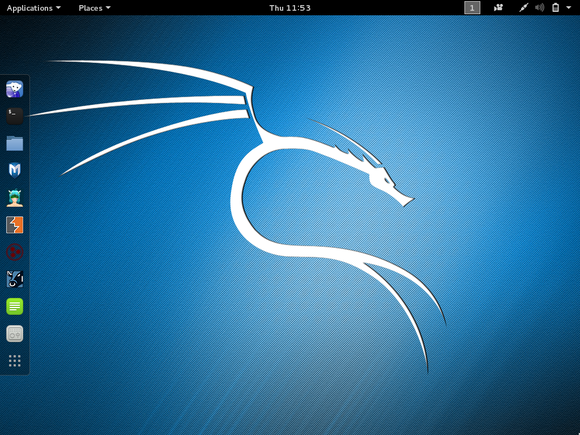
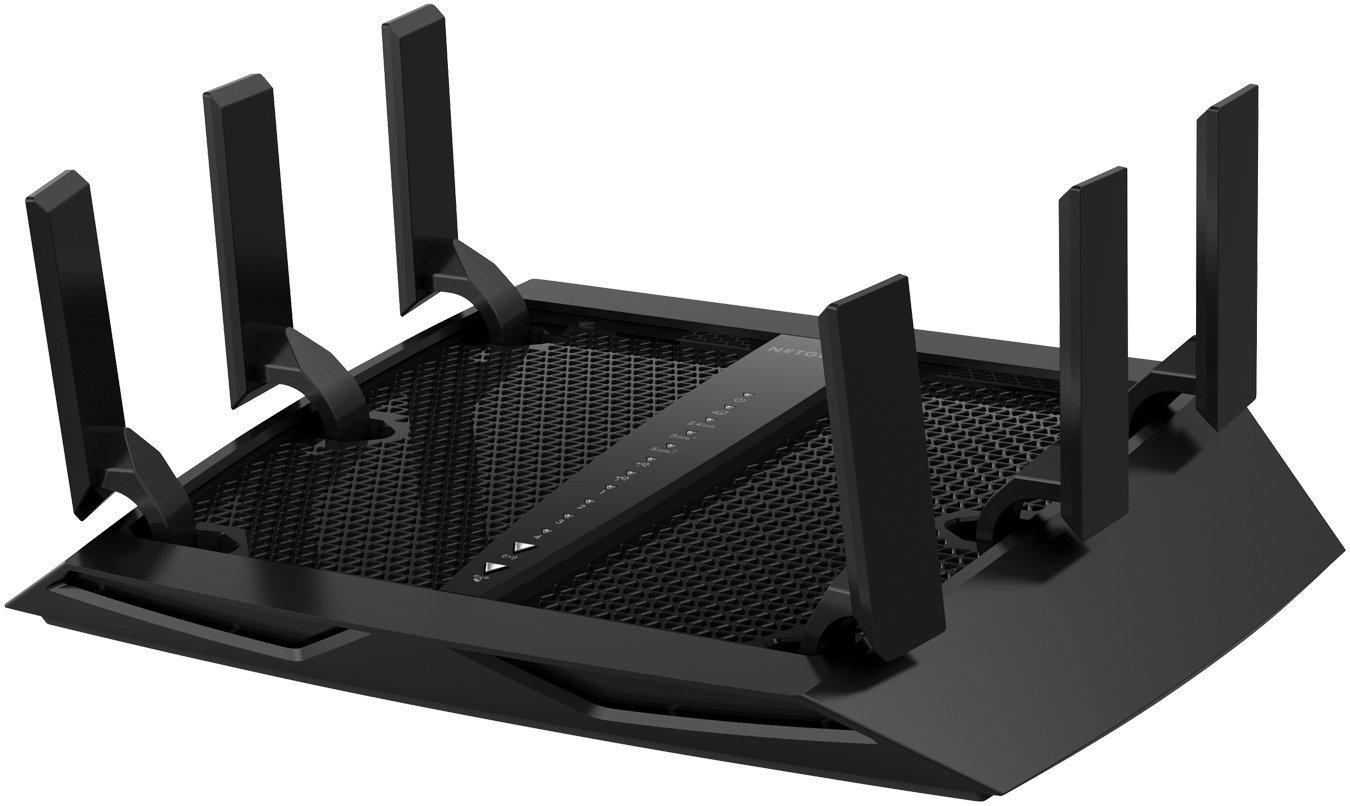
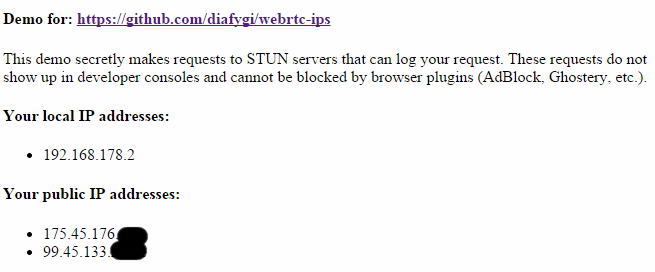

You need to be a member of Earth Changes and the Pole Shift to add comments!
Join Earth Changes and the Pole Shift